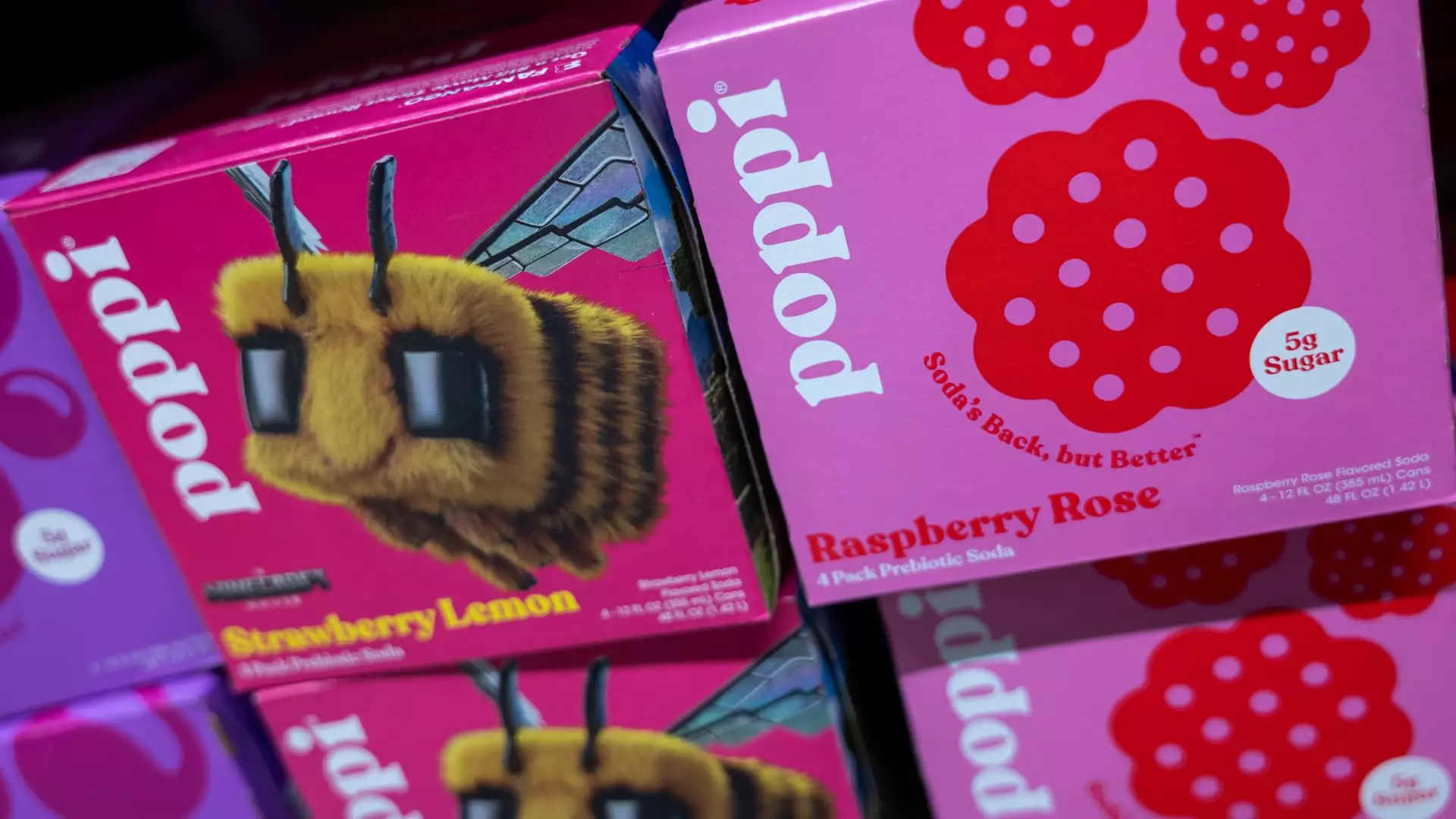PepsiCo’s recent decision to acquire Poppi, a promising player in the prebiotic soda market, raises questions not just about its strategic direction but also about the underlying motives driving such a colossal investment. At nearly $2 billion, this deal must be scrutinized closely, as it potentially signifies a desperate attempt by PepsiCo to invigorate its stagnant soda sales. While health-conscious trends may look appealing, this acquisition could be more gamble than game changer.
Prebiotic sodas have surged in popularity over the last few years, primarily attracting an audience that increasingly favors alternatives to traditional soft drinks. However, this trajectory of growth is far from guaranteed. The industry’s foundation rests upon marketing claims that can be fragile when subjected to legal scrutiny—as evidenced by Poppi’s ongoing class action suit regarding misleading health claims. This cautionary tale indicates that even “healthier” options can quickly tumble from grace if the public perception shifts or if legal challenges arise.
The Illusion of Innovation
While it may be tempting to view the acquisition as a forward-thinking strategy, it reflects a broader issue within the food and beverage industry: the struggle to innovate organically. PepsiCo had intended to introduce its own line of functional sodas through its Soulboost brand but opted for the quicker fix of snatching up a competitor. This raises critical questions about Pepsi’s ability to foster genuine innovation. If the largest soft drink company in the world resorts to acquiring its competition rather than developing unique products, it prompts skepticism about the sustainability of the brand’s future.
Moreover, the financial details of the Poppi deal raise some eyebrows. A net purchase price of $1.65 billion—after accounting for anticipated tax benefits—comes with substantial risks. Poppi’s relatively small sales footprint (reportedly crossing $100 million in 2023) does not justify such a staggering price. Instead of injecting vitality into its product lineup, Pepsi may be merely buying itself a ticket to a crowded market that is already facing challenges.
Competition and Backlash
Equally telling is the competitive landscape. The emergence of brands like Olipop complicates Pepsi’s plans, making it clear that the prebiotic soda segment is far from stable. Olipop was recently valued at $1.85 billion and is attracting similar interest from beverage giants, which might lead to a price war among established players eager to stake their claim in a nascent market. Such dynamics could undermine the profitability of any acquisition, as companies rush to capture market share before the bubble bursts.
Additionally, the backlash against Poppi’s health claims can’t be overlooked. The company’s previous marketing tactics resulted in a lawsuit, undermining its credibility and casting a shadow over its financial performance moving forward. Any company living in the sphere of health-centric beverages must tread cautiously, as consumer trust is paramount. If PepsiCo can’t navigate these complex waters carefully, this acquisition could backfire spectacularly, leading to further erosion of brand integrity.
In essence, the market for healthier soda alternatives is a double-edged sword. While consumer demand for innovative products exists, the execution is fraught with risks. PepsiCo may find itself holding a pyrrhic victory—a costly acquisition that bolsters its portfolio but could ultimately lead to more harm than good. In choosing to invest heavily in Poppi, Pepsi lays its cards on the table, but the gamble might not pay off as hoped.

